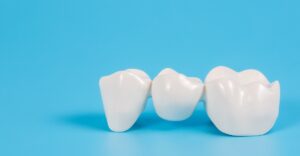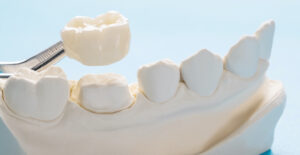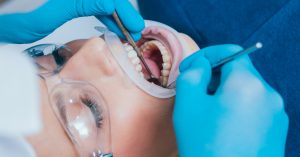Having sensitive teeth can be a painful and uncomfortable experience. And it affects many of us; more than 40 million Americans have sensitive teeth, according to the Academy of General Dentistry. Sensitive teeth can make it difficult to enjoy your favorite foods and drinks and even make brushing your teeth an unpleasant chore.
If you’ve recently noticed that your teeth have become more sensitive than usual, you may be wondering what could be causing it. In this blog post, we’ll discuss some common causes of sudden tooth sensitivity and what you can do to help relieve the discomfort.
What Causes Tooth Sensitivity?
There are several potential causes of sudden tooth sensitivity. Some of the most common include:
• Tooth Decay: Tooth decay is one of the most common causes of tooth sensitivity. If left untreated, decay can cause the enamel on your teeth to erode, leaving them vulnerable to hot and cold temperatures.
• Gum Disease: Gum disease is an infection that affects the gums surrounding your teeth. If left untreated, it can cause inflammation that leads to sensitive teeth.
• Wear and Tear: Over time, our teeth naturally wear down due to everyday activities such as chewing and grinding our food. This wear and tear can cause our enamel to thin out, leading to increased sensitivity in our teeth.
• Acidic Foods: Eating acidic foods such as citrus fruits or sodas can erode the enamel on our teeth over time, making them more sensitive to hot and cold temperatures.
How Can I Relieve My Tooth Sensitivity?
Fortunately, there are several steps you can take to help relieve your tooth sensitivity. Here are a few tips:
• Use a Soft-Bristled Toothbrush: A soft-bristled toothbrush will help protect your enamel from further damage while effectively cleaning your teeth.
• Use Desensitizing Toothpaste: Special desensitizing toothpaste contains ingredients designed to reduce tooth sensitivity over time. Be sure to look for one with fluoride for added protection against decay!
• Avoid Acidic Foods: As mentioned above, acidic foods can erode the enamel on our teeth over time, so it’s best to avoid them if possible or at least limit how often you consume them.
• See Your Dentist Regularly: Visiting your dentist regularly for checkups is essential for maintaining good oral health overall. But it’s also important to catch any signs of decay or gum disease early on before they worsen and increase tooth sensitivity.
When Should I See My Dentist?
If you’ve been experiencing sudden tooth sensitivity that doesn’t seem to go away with at-home treatments, or if you notice any other signs of decay or gum disease, such as redness or swelling in your gums, it’s best to see your dentist right away, so they can diagnose the underlying cause and provide appropriate treatment if necessary.
In conclusion, there are several potential causes of sudden tooth sensitivity, including tooth decay, gum disease, wear and tear, and acidic foods. Fortunately, you can take steps at home, such as using a soft-bristled toothbrush or desensitizing toothpaste that may help relieve discomfort. Still, if symptoms persist, it’s best to see your dentist immediately so they can diagnose any underlying issues before they become worse! At Warrier Dentistry, we are here to help; contact us today!












